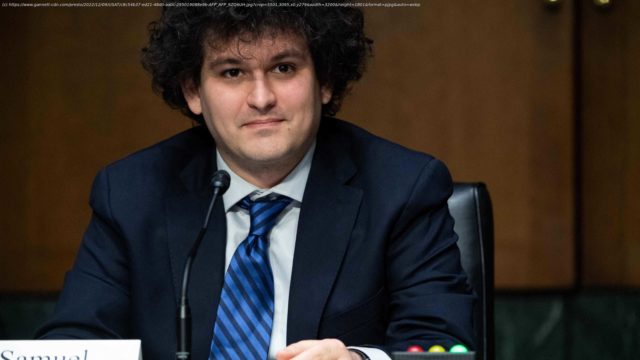Array
On today’s episode of the 5 Things podcast: FTX founder Sam Bankman-Fried arrested in Bahamas, indicted in New York
Specific charges were not immediately revealed, but Sam Bankman-Fried is now not expected to testify before Congress Tuesday. Plus, Arizona Republic Investigative Reporter Joseph Darius Jaafari explains how private companies use immigrant labor, with the help of prisons, FBI hate crime data is flawed, Health Reporter Karen Weintraub looks at new treatments for diabetes, and the Department of Energy will announce a nuclear fusion breakthrough.
Podcasts:True crime, in-depth interviews and more USA TODAY podcasts right here.
Hit play on the player above to hear the podcast and follow along with the transcript below.This transcript was automatically generated, and then edited for clarity in its current form. There may be some differences between the audio and the text.
Taylor Wilson:
Good morning. I’m Taylor Wilson and this is 5 Things you need to know Tuesday, the 13th of December 2022. Today, the founder of failed cryptocurrency exchange, FTX, has been arrested. Plus how Arizona prisons sell undocumented workers to private companies. And we’ll hear about a major update to diabetes care.
♦
The founder of the failed cryptocurrency exchange, FTX, has been arrested in the Bahamas and indicted in the US. Specific charges surrounding Samuel Bankman-Fried were not revealed, but the Royal Bahamas Police Force said in a news release that he was arrested for various financial offenses against the United States. He’ll appear in local court later today. FTX was a global company with more than 130 affiliates that allowed individual investors to trade cryptocurrencies. It eventually grew to be the third largest exchange by volume. But Bankman-Fried resigned as CEO last month. And the company filed for bankruptcy when it was unable to pay all of the customers on the exchange who wanted their money back. The company said in bankruptcy filings that more than a million people may have been affected. Sam Bankman-Fried was also scheduled to testify remotely today before the House Committee on Financial Services, but that now won’t happen. And chair of that committee, Democratic Congresswoman Maxine Waters, said the arrest was curiously timed and goes against the public interest.
♦
Laws require that private companies verify that their employees are legally allowed to work in the United States. But despite that, an Arizona Republic investigation found that some companies in that state have exploited a loophole, hiring undocumented workers with the help of prisons. For more, I’m now joined by Arizona Republic Investigative Reporter Joseph Darius Jaafari. Joseph, thanks for being here.
Joseph Darius Jaafari:
Thank you for inviting me.
Taylor Wilson:
So your investigation found that some companies in Arizona are hiring prisoners who have ICE detainers and are not eligible to work legally in the US. Let’s start with the basics, Joseph, what is an ICE detainer, and how do these companies get around this with the help of prisons?
Joseph Darius Jaafari:
So I think to first answer that we have to understand how prison labor in Arizona, and really across America, works. So in Arizona, it is in law that if you are a prisoner of any kind, you are required to work. So we house at any given moment, around 2,000 to 3,000 people who are here without work authorization, meaning they are here – either they came on a tourist visa or they crossed the border illegally or they have a residency, but then they committed some crime where they have lost their work authorization.
When that happens, what typically is supposed to happen is when you go into prison and you have this detainer put on you by ICE, that essentially means that at the end of your term, or sometimes in the middle of your prison sentence, you will be given to ICE custody to be deported. That’s what’s supposed to happen, but we know that doesn’t always happen. We see that on the end of people’s sentences, ICE comes in and says, “Oh, these people are eligible for deportation, put a detainer on them.” And then they take them maybe sometimes days before the end of their sentence or the middle of their sentence.
There is a small select group of people who work for a for-profit state-run company called Arizona Correctional Industries, and that agency, which is a part of the Department of Corrections, has one edict, which is to lease out prisoners to private companies and to make sure that private companies can also get products made for their stores, for their bars, for their houses, their dormitories.
Home
United States
USA — Science FTX founder Sam Bankman-Fried arrested, breakthrough in nuclear fusion: 5 Things podcast






